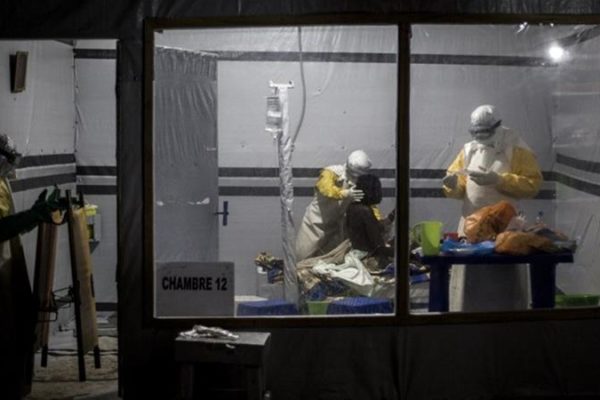United Nations takes on a Proactive Stance Against Domestic Violence with Firdaus Kharas' No Excuses
United Nations takes on a Proactive Stance Against Domestic Violence with Firdaus Kharas’ No Excuses
By LynnfromBC, published on Blogcritic.org — April 25, 2011
Last week, on Monday, April 18, 2011, the United Nations held a press conference to promote the work of the award-winning animator and producer Firdaus Kharas. No Excuses is a human rights campaign that features a series of 11 short animations (spots or shorts) working to prevent domestic violence, child abuse, and sexual assault around the world.
With April being Sexual Assault Awareness and Prevention of Child Abuse Month, this timely launch offers 30 seconds of humorous animated “shorts” in 73 different languages. Each of the 11 shorts is scripted to address the most prevalent issues of domestic violence today, for example the power relationship between a man and a woman, or between parents and their children.
The animator explains: “The campaign focuses on the 10 most prevalent issues: preventing cultural justifications of violence: preventing abuse within marriage; challenging the perceived right of men to commit violence; and preventing the sexual abuse of women, among others.” (Kharas, Cultureshift TV).
After another week of violence in the headlines, prevention-oriented campaigns likes Kharas’ cannot come soon enough. As Richard L. Davis ALM, an expert in criminal justice management writes in his article “The Tragic Toll of Domestic Violence”, proactive public policy hardly exists: “Most domestic violence interveners and public policy makers provide little to no proactive intervention concerning domestic violence precipitated homicide/suicides. Perhaps it is time to consider more proactive interventions to prevent these types of homicide/suicides for potential victims and victim/offenders” (Davis, Policeone).
In addition to his views on the absence of proactive intervention, Davis criticises current intervention strategy with a report from the US National Research Council inferring that unless we address violence across all stratums of society in researching domestic abuse, we will remain limited in what we can prevent.
Just in the last week, since the No Excuses campaign was unveiled, the need for proactive intervention could not be clearer. Not only were there more bloody protests and war across the Middle East, a Florida man beat his ex-wife unconscious in front of a judge in chambers, a high profile NFL player was stabbed by his wife, while more of Hollywood’s talent publicly contend with their own domestic violence allegations and mishaps.
Add to that the disturbing murder/suicide, perpetrated by a mother in New York State earlier this month, where in the aftermath of an alleged domestic dispute, she intentionally drove her minivan into the Hudson River, drowning herself, and three of her four children.
It is without any doubt that every person involved in the above events had the motive of maintaining power over another person by the use of violence, and that the outcome was anything but humorous.
However, in providing a preventative slant on domestic violence and abuse, Kharas has robustly used humour to impart his global message. Most notably, while each situation of violence is unique and varied in perception from victim to perpetrator (everyone has their story), Kharas’ work justly fills the void where before, as Richard L. Davis purports, there was a lack of effective strategy.
While it is still often felt that the issues derived by the occurrence of domestic violence in contemporary society are anathema, the issue at hand in No Excuses is about how to stay personally in control so that no one has to feel the stigma that often goes hand in hand with domestic violence. In effect, let’s talk before it hurts, not after.
Hence, after careful consultation with a team of professionals in the field of domestic violence, Kharas has scripted his video shorts to provoke just enough cognitive dissonance in the viewer to provide a “catalyst to stimulate discussions in millions of households (Kharas, Culture Shift TV).” Without speaking down to anyone, the video shorts create a safe and a somewhat comfortable atmosphere to address the perpetrator’s abuse, rather than focusing on the aftermath, injuries and trauma of any one victim.
Furthermore, while many people have come to use their religion or culture as an excuse or a way to explain away abuse, No Excuses, says Kharas is unique in addressing this issue: “This is the first time the issue of justifications of violence and abuse have been addressed, including the use of culture, religion and tradition.” (Kharas, Culture Shift TV).
Very subtlety, yet powerfully, the video short on culturally or traditionally shaped justifications for the use of violence in familial relationships is judged adequately, and without prejudice. The bold piece creates space for the positive reinforcement needed to motivate sincere behaviour change. According to Kharas, “Essentially we are shining a light where there is darkness.” (Kharas, Culture Shift TV)
During last Monday’s United Nations press conference, when questions arose about the causes of domestic violence, Kharas responded: “Domestic violence stemmed from one person’s perception of “self-power” over another.”
Put another way, domestic violence infers that one has the right to inform someone of his/her displeasure through various forms of assault; a distorted perception pertaining to the lack of personal boundaries in one person who feels entitled to violently impose their will on the personal boundaries of another.
Available as public service announcements and downloadable on “YouTube” No Excuses is accessible free of charge to broadcasters, domestic violence workers, educators and others interested in the cause. Donations to the philanthropic organization can be made to the No Excuses web site.



